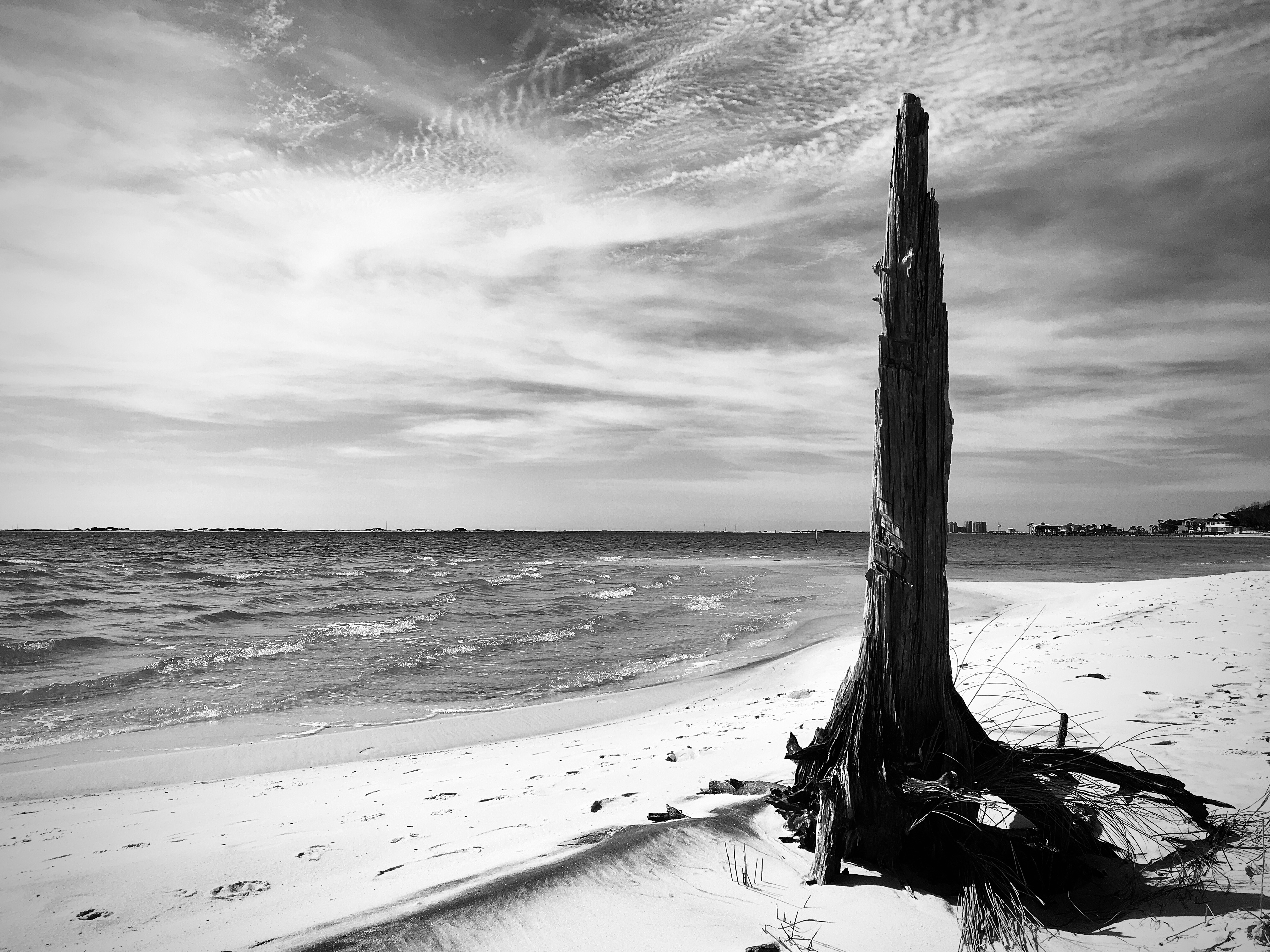
Things that stand on the edge of the shore are often defined by a certain rugged stance.
The barnacle-encrusted supports of old piers; the salt-bleached stumps of trees that grew tantalizingly close to the water, only to become solitary monuments of driftwood, gnarled and carved by the elements. They stand like sentinels, guarding with their presence a unique domain in the endless, and endlessly-changing horizon. They reassure us with their steadfastness and draw us closer with their silent, mysterious resilience. What unspoken sights and stories cling to these weathered landmarks? What is this quiet attraction that pulls you closer to stand alongside them like an old familiar friend, when we stop to strain our eyes across the distance, watching from the edge of the sea for something we don’t yet know?
The ocean is the most changeable form of life. It fosters more living organisms than the richest parts of the rainforest, and yet it can snuff out life with less mercy than any other earthly force. At the shore, where this is so clearly evident, everything around you shifts and moves constantly, from the changing moods of the water, to the fragile flow of sand at your feet. It sways from gentle, swishing bubbles and rhythmic caresses, to the most raging primordial fury. Everything that dares to cling to its outskirts is subject to being molded, battered, galvanized by its elemental hand. Nothing is permanent; all is in flux.
But so is everything else.
We have a neatly-packaged hereditary illusion that comes from living so many eons on solid ground. Our anchored feet tell our brains a fairy tale about the moving, changing phenomena happening in the dome around our stationary point of view. We strive for more secure, more predictable situations and places of being. And that routine gives us a sense of control - which is the biggest punchline of all. Because when surprises catch us off guard, or what we term “disasters” or “misfortunes” ruin our plans, we’d really just forgotten that we traded the basic instinct of self-preservation for the empty security of entitlement. Because we schemed and planned long enough to outsmart nature’s script - or so we thought - and all along the way we had learned to cling to the wrong things.
Living near the ocean teaches you honesty. What you can control (or what you think you can control), and what is most precious to you, is marginally irrelevant, and highly subject to change. The ocean reminds you that everything in nature coexists at violent extremes of peacefulness and destruction, and that millennia after the fact, life itself still teeters on the brink of the very same teeming tidal pools, as our freshly-congealed planet hurdles through the galaxy. And the beautiful, familiar signposts - those petrified driftwood pillars, the worn-down man-made piers - rise like markers in our collective memory, for the things that stand still and tall amidst all the changing forces. Like everything around them, they will succumb to the elements - but for now they stay, as we find our bearings, enduring reminders of simple truths, and the small wonder of a fixed moment in a rushing universe of time.
